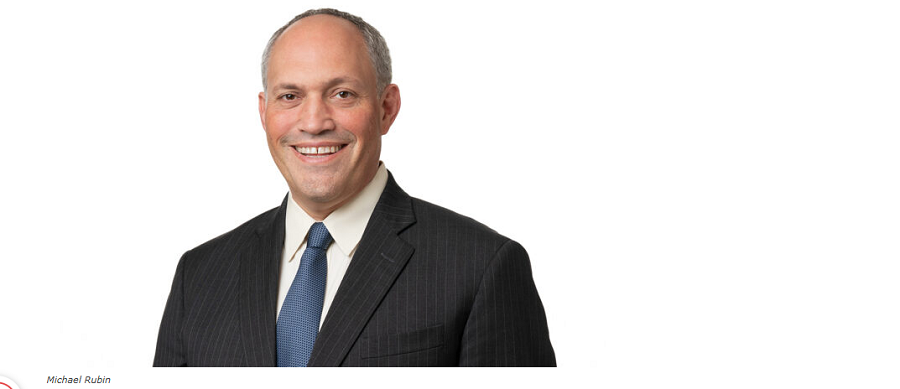The Armenian Mirror-Spectator. More than a half century ago, the Greek junta and its allies in Cyprus sought enosis, the political union between Greece and Cyprus. Fearing that any such union would harm the Turkish Cypriot Muslim community, Turkey invaded Cyprus, seizing around three percent of the island. It was enough to prevent any Greek ambitions to annex Cyprus. Within days, the Greek junta fell under its own weight. The birthplace of democracy returned to democracy. Today, Freedom House ranks Greece and Cyprus as among the world’s most democratic countries, superior even to the United States prior to President Donald Trump. Turkey, meanwhile, ranks among the world’s most repressive dictatorships. Ugandans under Yoweri Museveni’s four-decade dictatorship enjoy greater freedom than Turks do under President Recep Tayyip Erdoğan.
Armenians just commemorated the 110th anniversary of the Armenian Genocide. Many Turks deny the genocide on historic grounds, while others simply eschew responsibility by foisting culpability onto the Ottoman Empire or Kurds. In reality, both groups are wrong. The Armenian Genocide is as well documented as the American Revolution; to deny either is to embrace the lunatic fringe. The Genocide began among the Young Turks and continues after the collapse of the Ottoman Empire and the birth of the Republic of Turkey; to therefore suggest a boundary exists between Ottoman and Turkish history is to ignore its permeability. Kurdish irregulars, meanwhile, did participate in the Genocide but this does not exculpate the Turks.
Genocides are not unique. In the 20th century alone, there was the Armenian Genocide, the Holocaust, the Bangladesh Genocide, the Isaaq Genocide against Somaliland, the Anti-Tutsi Genocide in Rwanda, among others. What makes the Armenian Genocide different from most others, however, is that there has been no defeat for the ideology promoting genocide. There is a stigma attached to Neo-Nazism and an outright ban on the groups in Germany, and Hutu génocidiares are not welcome in Rwanda. The Turkish government and much of society rewards denial of the Armenian Genocide. In recent months, Erdoğan has not only double down on denialism, but has bragged about Turkey’s role in the ethnic cleansing of Nagorno-Karabakh.
Once again, however, the United States and Europe prostrate themselves before Erdoğan due to an exaggerated sense of Turkey’s importance. The State Department refuses to express the simple reality both that Turkey occupies Cyprus and that Azerbaijan ethnically cleansed Nagorno-Karabakh and that it did not spontaneously “depopulate.”
Read also
Turkey, however, is not important. Army size matters far less than training. Remember, prior to 1991 Operation Desert Storm and the liberation of Kuwait, the late Iraqi dictator Saddam Hussein bragged the fifth largest army in the world. Turkey’s Korea War-era cooperation with NATO does not erase more than seven subsequent decades or the fact that Turkey is more likely to use its weaponry today against NATO members than in defense of the alliance. Nor does the Incirlik Air Base maintain its Cold War relevance; Souda Bay and Alexandroupoli in Greece and Constanța in Romania make much of Incirlik redundant, nuclear missile storage or not. Turkey’s chief strategic asset to the United States today is the Kürecik radar station upon which the Pentagon relies to determine certain missile trajectories quicker than satellites can. The United States both survived prior to the radar station’s 2012 inauguration, however, and could duplicate its functions from Armenia.
The best way to counter Turkey is to use its own inconsistencies against it.
Erdoğan repeatedly justifies a troop presence in northern Cyprus to prevent ethnic cleansing or genocide when, in reality, he is the perpetrator of both, and Cyprus’ own Turks resent the influx of Anatolian settlers to the island. Not only should Western capitals declare the threat of anti-Turkish Muslim ethnic cleansing on Cyprus over and call the Turkish military presence an unjustified occupation, but they should cite Erdoğan’s own belief — that fear of ethnic cleansing and genocide justifies military deployment — to demand that international peacekeepers enter eastern Turkey and portions of Istanbul to protect Armenian and Greek communities and properties. After all, there could be no better convincing that genocide could resume than Erdoğan’s own words and actions against church properties, endowments, schools, and the documented property of both Armenians and Greeks.
Realistically, no one will invade Turkey tomorrow, though there could be opportunity to right historical wrongs in the period of chaos that always follows a dictator’s death. Still, Erdoğan would have no one to blame but himself for such an eventuality given that he set the precedent and provided the logic. That Armenia today is a rump state, with Ararat beyond its frontiers and Nagorno-Karabakh ethnically cleansed, represents a historical travesty, the rectification of which, as in Cyprus, would be higher on the diplomatic agenda if only American and European foreign ministries showed both imagination and a willingness to turn dictators’ own words against them.
(Michael Rubin is a senior fellow at the American Enterprise Institute and director of policy analysis at the Middle East Forum.)






















































